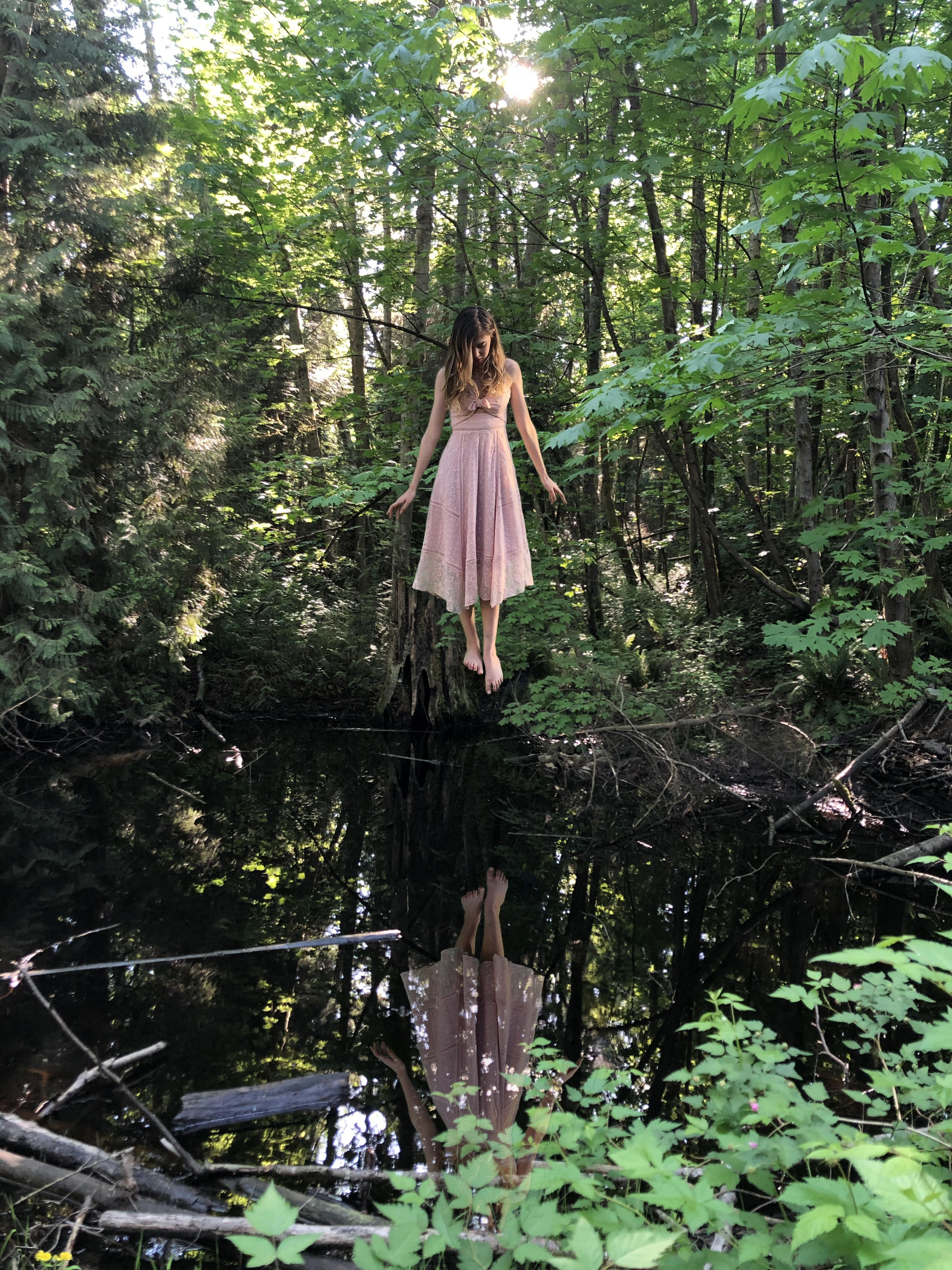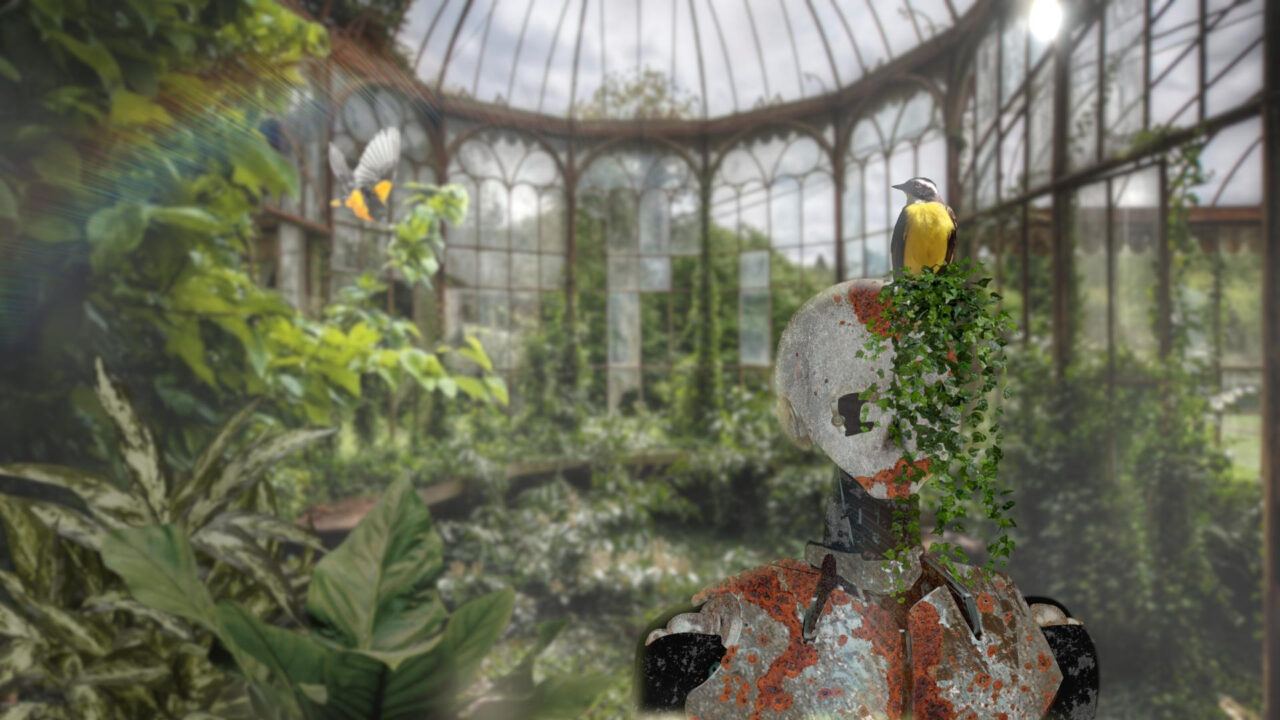Poppy Felts Builds ‘Fantastical Worlds’ in Jiwoon Kim's Online Summer Course

Posted on | Updated
“I've learned that compositing is almost limitless in its abilities to create worlds and fantastical images,” says the ECU student.
An online-only digital compositing class taught over the summer saw one student learning to build “fantastical worlds” under remote instruction from faculty member Jiwoon Kim, a compositing artist currently working as Compositing Lead at Sony Pictures Imageworks.
Poppy Felts, one of Jiwoon’s students, recounts some initial skepticism around whether online course delivery would work for her.
“Like many students, I had concerns about how well I would be able to understand the content and create [work] I was proud of in such a new and disconnected learning environment,” she says. Her fears, she gladly adds, were unfounded.
“Jiwoon’s classes are fantastic; they are always informative, interesting with practical demos and examples, and he has truly dedicated the time to his students,” Poppy says. “In addition to teaching us the program and encouraging our creative goals, he discussed how compositing works in the real world … shares useful student resources and has offered to review work for showreels, which I know many students are conscious of as we think about the real-world applications of our education.”
“I don't think students should be afraid of taking online courses. They’re just as effective as being in the classroom.”
The commitment Poppy describes was, according to Jiwoon, fully reciprocated by Poppy and her classmates.
“My students have been very energetic; they want to know more and they just keep working, keep pushing themselves,” he says. “When I give them a new topic, they just keep working on it and they keep asking questions. I don't think students should be afraid of taking online courses. They’re just as effective as being in the classroom.”
Digital compositing, the subject of Jiwoon’s summer course — as well as an upcoming Fall course — is one of the very final steps in the production of a film, whether live-action or animated. According to Jiwoon, compositing is where raw “renders” (film scenes or animated sequences) are brought together with an array of dazzling effects and polished to a cinematic shine. This is essentially a world-building exercise, where the bones of a cinematic universe are constructed into a convincing, expansive environment.
Jiwoon has worked his compositing magic for big-budget and award-winning films including Avatar, Avengers: Age of Ultron, Spider-Man: Homecoming, and Spider-Man: Into the Spider-Verse (which, in 2019, won an Academy Award for Best Animated Feature).
Compositing, Jiwoon adds, is also a process where an artist can let their creativity shine.
“The main goal of doing compositing is to create the illusion that many different elements are part of the same seamless scene,” he says. “A raw image will not have anything added in terms of color-grading or defocus or glow. It is the compositor’s job to make colour choices, think about lighting and tweak the lighting values … Once you go through the compositing process, the scene will have a more cinematic feel to it. It’s going to feel totally different from the raw renders to the final image.”

Animators in particular are able to save huge amounts of time, he says, since so much can be changed during that final step. Rather than having to make changes to original footage and then re-render it — a tremendously time-consuming process — compositing allows for control over a whole host of visual components in post-production, freeing an artist to spend more time focusing on their creative practice.
Poppy, in particular, found herself flourishing as she gained greater familiarity with the subject.
“I already knew what compositing was as a concept, but I've learned that compositing is almost limitless in its abilities to create worlds and fantastical images,” she says. “Through hands-on, practical teaching coupled with Jiwoon’s lessons on real-world application, my view on compositing has shifted as I've discovered the capabilities of the process. The program is great, but it would be a disservice not to highlight that this course — which I've thoroughly enjoyed and has taught me so much skill — was successful because of the instructor, Jiwoon.”
Jiwoon’s next course, 3DAN 225 F090: Digital Compositing I, begins in September.